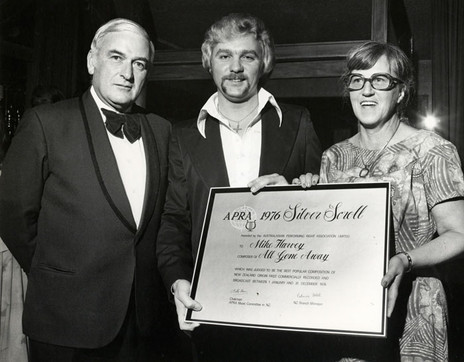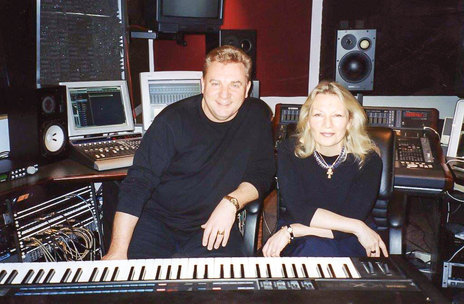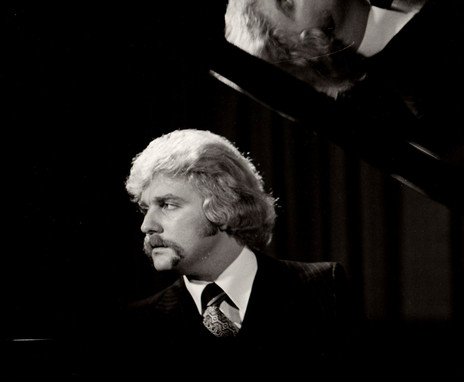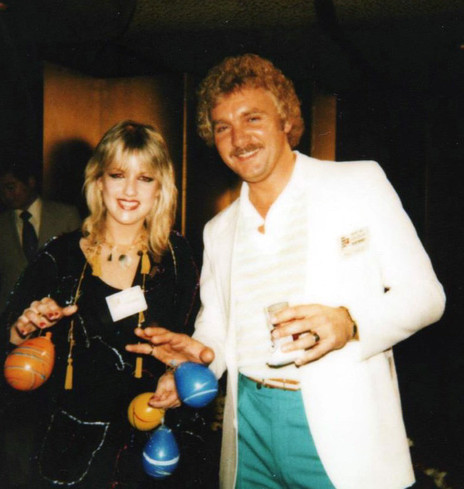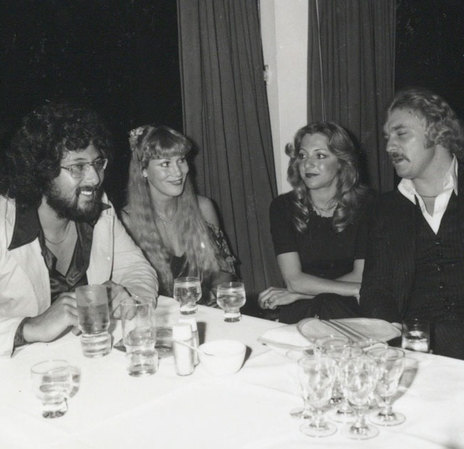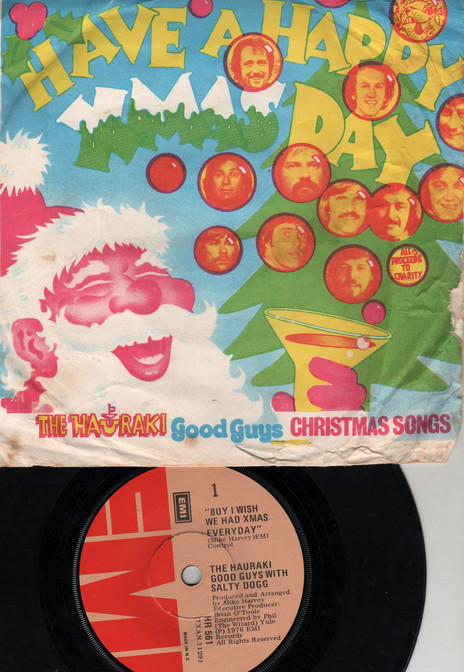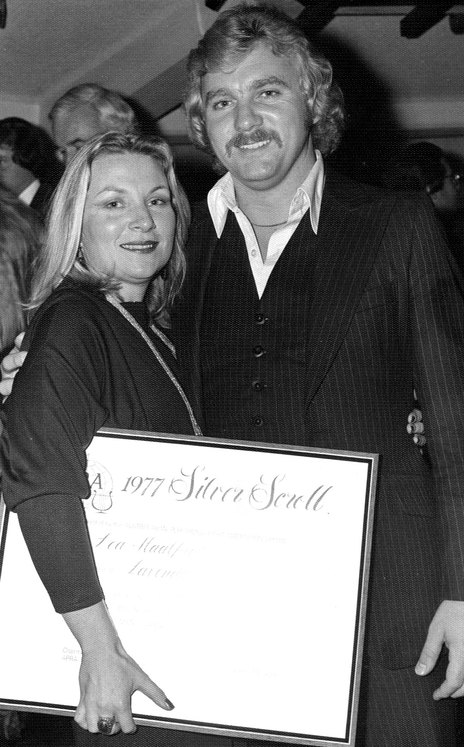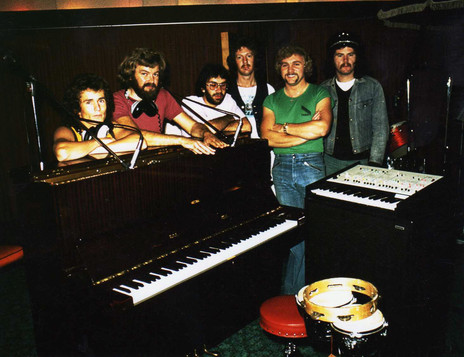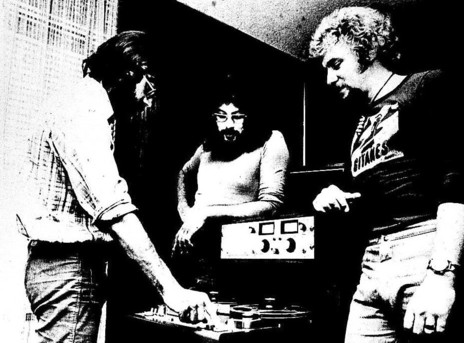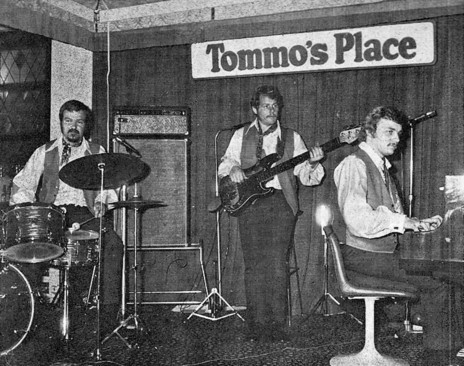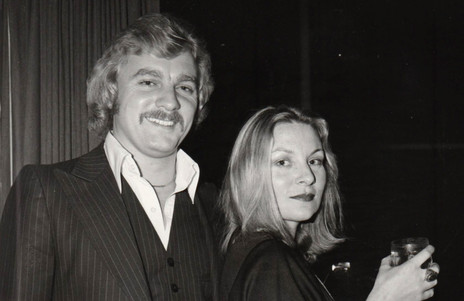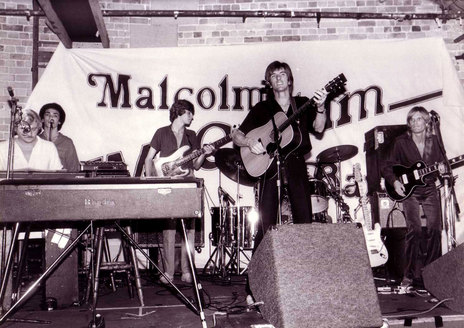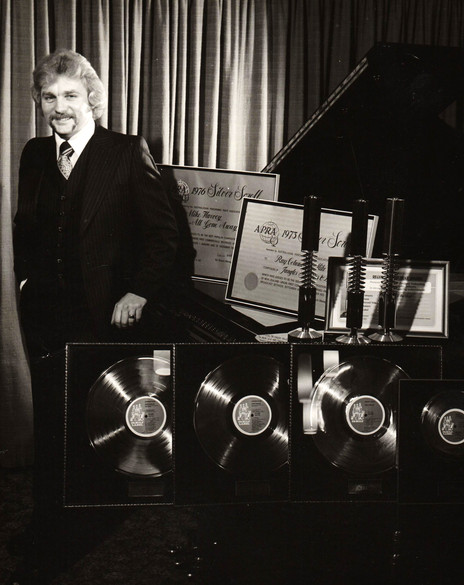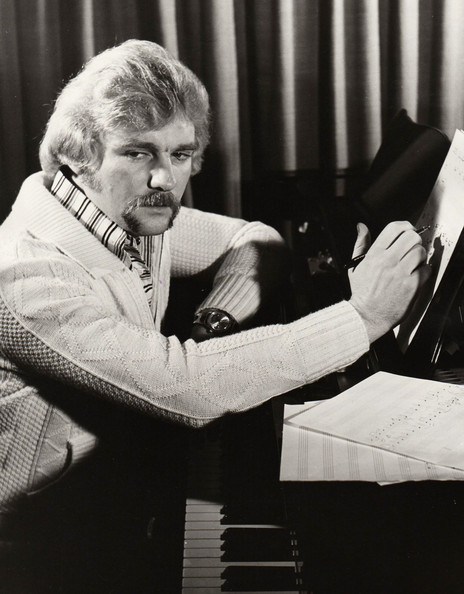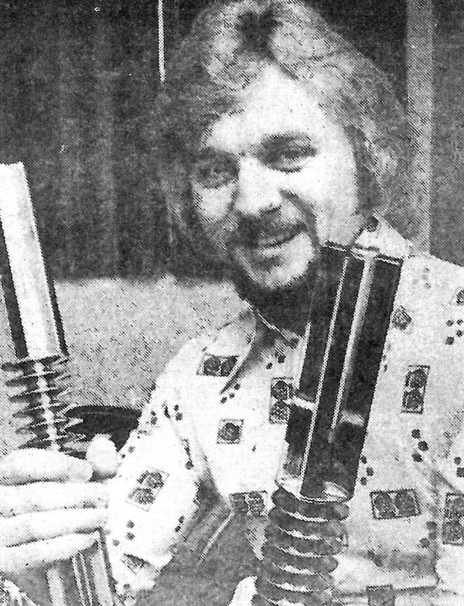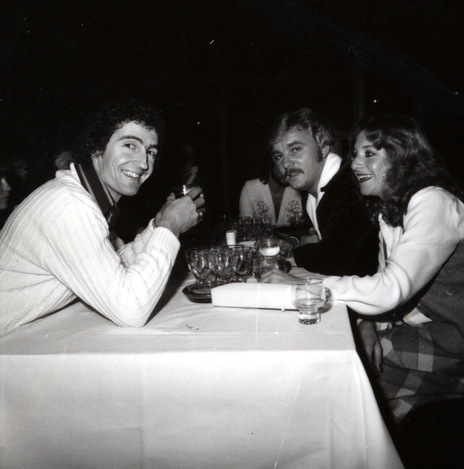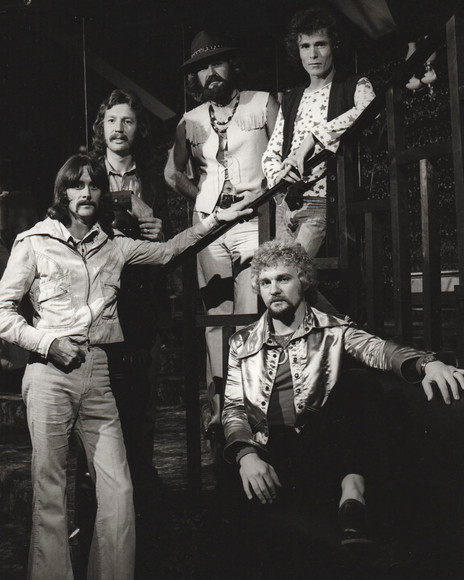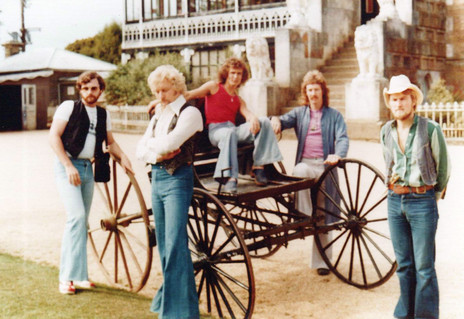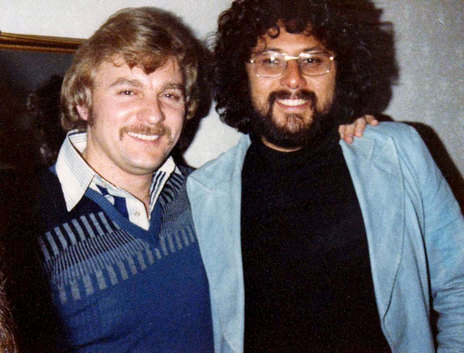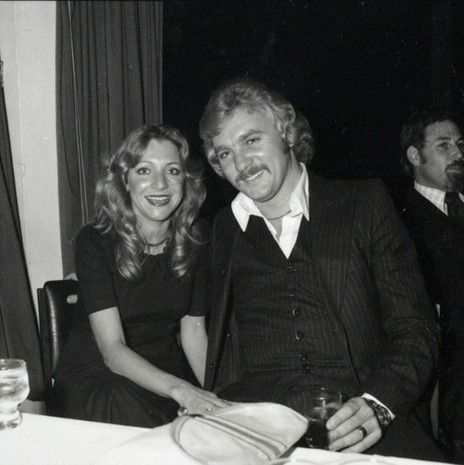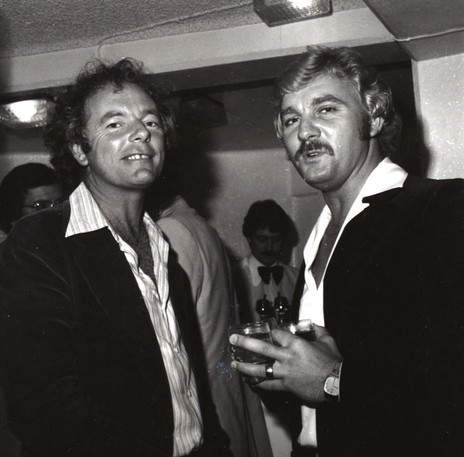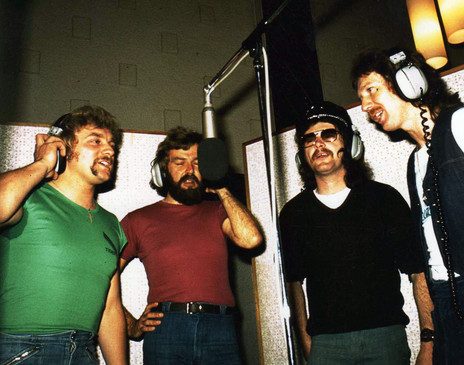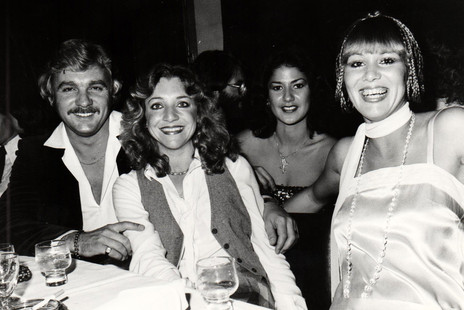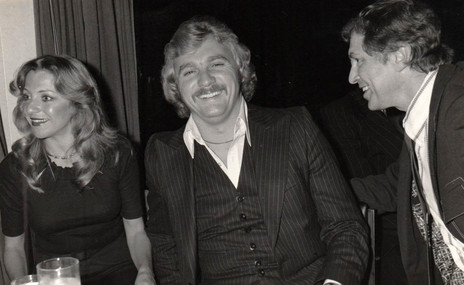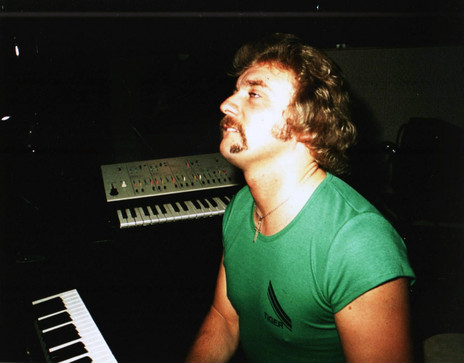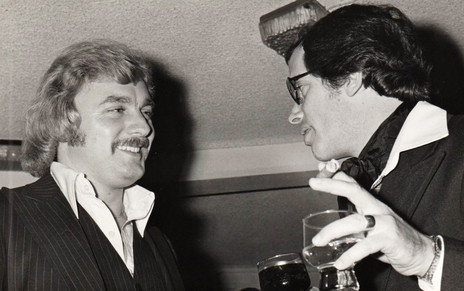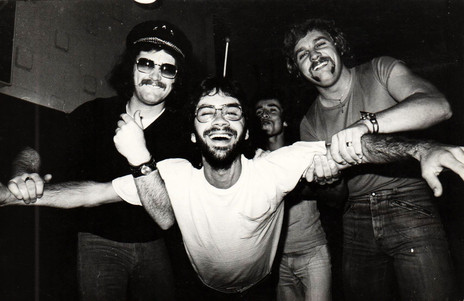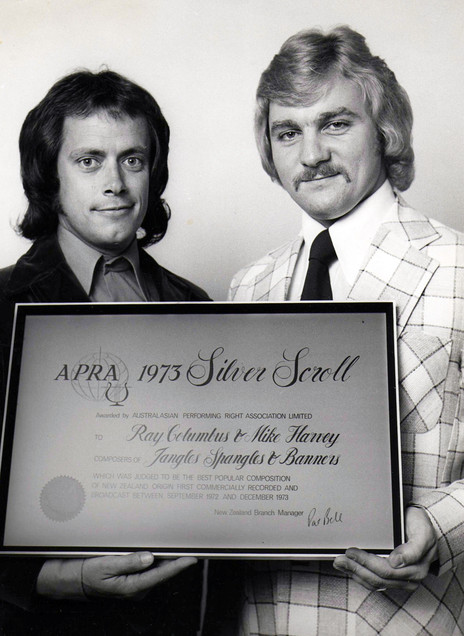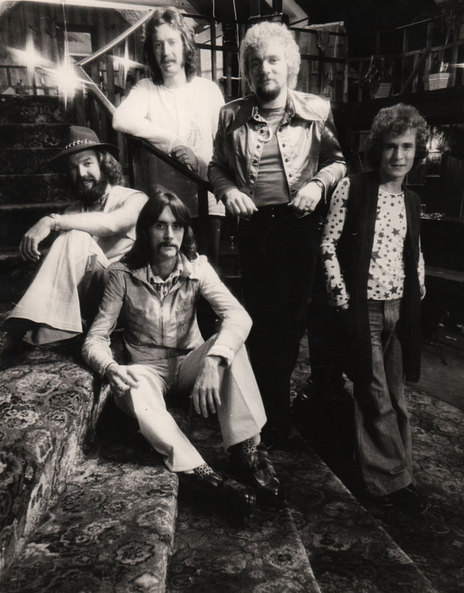In the late 1960s Mike Harvey was playing keyboards at Auckland’s Station Hotel with resident band The Trinity featuring Vic Williams on drums, Bill Belton on bass and Ray Woolf on vocals. Over three years they backed guest artists including Bridgette Allen, Howard Morrison and Steve Allen. Concurrently they had a late night gig with Ray Woolf and was studying for a Bachelor of Arts degree at University of Auckland until the music bug bit even harder and he tossed in his studies for a two year residency as pianist on TV show Happen Inn.
Harvey won the 1973 APRA Silver Scroll for best song composition.
Harvey won the 1973 APRA Silver Scroll for best song composition with Ray Columbus singing their song ‘Jangles, Spangles and Banners’.
After he connected with singer and advertising executive John Hanlon, his keyboard and production skills and his ear for a good composition were in constant demand. “Advertising helped me a lot as a producer because I was producing 30 seconds of important information all the time which was helpful in writing commercial pop songs.”
Harvey produced John Hanlon’s iconic hit ‘Damn the Dam’ and the subsequent album Garden Fresh. It started out as a Pink Batts insulation commercial, although at the time Hanlon was already becoming something of an activist around the controversial hydroelectric power scheme. “We discussed turning it into a song and decided to record the single which was one of the most successful things he’s ever done and the message is still very relevant today.”
Harvey continued to work with Hanlon on consecutive albums including Higher Trails. “We worked together really easily. We were good friends and he was open to ideas but he had no trouble saying so if something wasn’t going the way he wanted.”
After a break from regular pub and club work, Harvey wanted to get back on the road with a band, which became Salty Dogg. On drums was his old mate Vic Williams (who went on to become a TV chef and wine critic), with Australian Graham Chapman on vocals, Basil Peterkin on bass (later replaced by Chris Gunn), and on guitar the masterful Martin Winch. “We wanted to play classy rock with a strong guitar influence and to write our own material.”
All the members of Salty Dogg "loved to play and sing", which became the title of their first single and their only album, which Harvey mostly wrote, arranged and produced. A track from that album, ‘All Gone Away’, earned him his second APRA Silver Scroll Award winner in 1976.
From 1973 to 1977 Harvey produced all the APRA Silver Scroll award winning songs.
From 1973 to 1977 Harvey produced all the APRA Silver Scroll award winning songs. ‘Jangles, Spangles and Banners’, John’s Hanlon’s ‘Lovely Lady’ and ‘Windsongs’, Salty Dogg’s ‘All Gone Away’ and ‘Lavender Mountain’ by Lea Maalfrid. In his understated way, Harvey quips, “that was very satisfying and five in a row probably meant I was doing something right.”
Salty Dogg played the provinces, touring up and down the country, and during long periods back in Auckland maintained double residencies; four nights week at the Glenfield Tavern and on the weekends, the late spot at Tommy Adderley’s Grandpa’s nightclub in the central city.
“Every Thursday Friday and Saturday we carried all our gear including the PA up all these stairs with Fender Rhodes pianos and full drum kit. We must have been crazy but we really enjoyed it.”
He says Grandpa’s was a great place to work. “I don’t think there’s too many people who can say they had Charlie Watts playing drums with them one night. That was just fantastic.”
Harvey also recalls John Lord from Deep Purple getting up and playing his electric piano. “I was fairly heavy handed and he said I’d broken a ‘tine’ on the keyboard and said he’d send someone to fix it, which he did the next day.”
He says the members of Salty Dogg had a lot of fun playing together. “When it ceased to be fun we stopped.”
Harvey, still in his 20s and now working with EMI producing albums for John Rowles, Kim Hart and others and in 1977 was given the chance to deliver an album of his own original material, called Great Expectations. Initially he was commuting between two cities; the rhythm section was recorded in Auckland at Stebbing studios and the rest in Wellington. Key players were Martin Winch on guitar, Denis Ryan on drums, Rob Large on bass, and vocals from Dave Dobbyn, Lea Maalfrid and Denis Mason. Ian Morris and Dave Ginnane engineered.
He hadn’t listened to the album for years and having finally transferred it to CD in 2009, was surprised at the “life and exuberance of youth” in that recording.
The track ‘Crusher’ started out as a 30 and 60 second Lemon & Paeroa commercial, which John Hanlon asked him to write. It ended up as a single. The commercial won Best Musical Score for TV Soundtrack at the CLIO International Awards in New York in 1978. “I had won the best soundtrack for any commercial in the world that year, which was a real honour.”
The album title Great Expectations, rather than being inspired by Dickens, was taken from a lengthy two-part symphony based on Harvey’s personal expectations. “I expected to do well in my 20s; I thought I could take on the world.”
If there was a musical inspiration for production and style, it was the albums of the Alan Parsons Project.
If there was a musical inspiration for production and style, it was the albums of the Alan Parsons Project. Harvey was honoured to have his hero turn up in the studio while he was working on his own project. “While I was mixing Great Expectations Alan Parsons was in New Zealand to accept a triple gold LP and he ended up sitting in on part of the mix. He didn’t say a lot but when he listened to it he cranked it up so loud it was deafening,” says Harvey.
“I told him I had 100 hours to record and mix my LP and I asked him how long he took? His reply was ‘limitless’. I thought ‘you lucky bugger’.”
While Harvey was eager to see how the album fared when it finally hit the streets, events conspired against him. When he left for Australia to meet obligations there, the A&R manager he had been working with also left.
The replacement person wasn’t really interested in his recording and rather than being given the expected high profile promotion, Harvey says it was overlooked and trickled out. “I would have come back if they’d been interested in promoting it. In fact I was back here at least once a month doing commercials or production.”
While disappointed at the lost opportunity, the world didn’t stop turning. His song ‘Hanging On’, sung by Rob Guest, won the Song for the Pacific songwriting contest in Christchurch in 1978 and another of his compositions, ‘On My Toes Again’, sung by Kim Hart, came second.
The following year it was clear Harvey was on a winning streak, again taking out the Pacific Song contest with New Zealander Mark Williams singing the song ‘A Life of Our Own’ in Canada. Then there were award winning commercials, soap opera soundtracks including Sons and Daughters and Australia’s Most Wanted, and theme music for Pirates Island, Pan, Lush, and Old Wives Tale.
He’s still wondering about a soundtrack for a Bollywood movie filmed in Australia that produced a one hit wonder. ‘Akash’s Love Theme’ from the movie Dil Chahta Hai became the No.1 film, CD and DVD in India. “I thought that’s fantastic, I can look forward to some royalties, but my publisher was never successful in tracking those down. While India is a different place now, the performance rights tracking in those days was not what it should have been.”
For many years Harvey had been going to New York and London to see shows. “I love Broadway shows, the music that comes out of them and that fact it’s live entertainment.”
He says it’s a tough journey writing for shows. “You are laying everything you do as a creative person on the line because there are more critics for musical theatre than just about any other genre of music and they all seem to think they know how it should be done.”
He put his all into the Australian show Eureka, the story of the Eureka stockade and the rebellion against the Australian flag for the 150th anniversary in 2004.
"Maggie Gordon, the original lyricist for the show, had contacted me in 1999. After several workshops we did a concert tour in 2003, and this tour featured Rob Guest and Barry Crocker - from that tour we raised the finance to put on the full musical in Melbourne in 2004. Gale Edwards was appointed the 2004 show's Director and was also co-writer with John Senczuk, and Maggie Gordon. There were several cast changes and re-writes in the Melbourne production.
"The Melbourne production had many good reviews including "Eureka is Pure Gold! " (in the AGE), but we ran for only 8 weeks instead of at least 8 months, and the show was not successful financially. Unfortunately the disappointment of 5 years work coming to an end so quickly, and the financial losses, tipped me over the edge and I was very sick for some time, and by 2005 I had taken "early retirement due to poor health".
Some years prior to this Harvey had produced the definitive version of the Australian National Anthem, sung by Julie Anthony, backed by the Sydney Symphony Orchestra, and endorsed by Prime Minister Bob Hawke.
“It was a great moment for me and I’m proud to say it was used for many years in school and is still used at public events. I’m sure Kiwis will forgive me. I’d be proud to do the same for the New Zealand National Anthem if I was asked.”
Looking back, Mike Harvey is all too aware of the pressure on musicians to deliver and keep delivering if they want a successful career. His own wake-up call came after a bout of nervous exhaustion.
While he had started out in the early 70s with great expectations, the late nights, long hours and pressure to perform eventually delivered him to death’s door and he was forced rethink his lifestyle.
Mike Harvey says the music business is a harsh taskmaster and while there are many magical moments, you’re only as good as your last success. “When you’ve got multiple projects on the go and you’re in demand everyone wants a piece of you.”
He used to think he had stress under control and while others were throwing tantrums, he refused to vent his true feelings and faced a series of cardiac events. His health deteriorated further as he tried to keep up with the workload, and then one intense weekend in the studio, he had a stroke. “I’m very lucky I came through it without any disability.”
He took a four-year break from the keyboards but even though he’s back in the game he admits he still doesn’t handle stress well. “It’s knocked the stuffing out of me a little bit. The best advice I can give to any overworked musician is to take time, stop and smell the roses as they say, because you need to do that often.
"However, despite the roller-coaster ride that is the music business, I am very proud of my contribution, and I have great memories of the times and the journey shared with those I worked with. Thank you all.”
